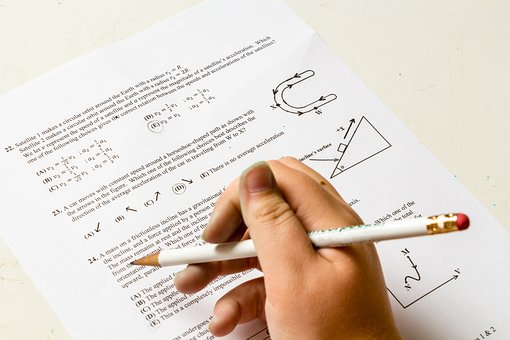 I realize I was going to talk about providing visuals for certain algebraic concepts but I am taking time to look at multiplication games because there is a 20 minute time period written into the regular schedule for interventions. Most of the lowest performing students do not have their multiplication facts down cold.
I realize I was going to talk about providing visuals for certain algebraic concepts but I am taking time to look at multiplication games because there is a 20 minute time period written into the regular schedule for interventions. Most of the lowest performing students do not have their multiplication facts down cold. I realize they can use calculators but there are still some tests to get into certain vocational programs out there that do not allow the use of a calculator. Furthermore, if students know their multiplication facts then they can use their brain for more difficult things.
These do not require technology to do. I live in a place where the power can easily go down and there is no access to the digital content. I like having things like this available, just in case.
1. Back to Back - the teacher chooses two students to stand in front of the class, by the board and they stand back to back. When the teacher says go, each student writes down a number between 1 and 20 but they can't see each other's numbers. Someone from the audience multiplies the two numbers together and calls out the product. The two people at the front of the room take turns guessing the other person's number based on knowing their number and the product. The first person with the correct answer is the winner and stays up there. The other person sits down and is replaced by another student.
2. True or False - Divide the students into small groups. Give each group a double sided index card with true on one side and false on the other side. The teacher writes a mathematical statement on the board or project it on the white board that is either true or false. Let the students discuss it for a minute or two and then ask them if they think it is true or false by holding up the index card. Every team gets a point for their correct answer. The team that wins is the team that reaches 10 points first.
3. Beach Ball Toss - Inflate a beach ball and write multiplication problems on the ball before class. Have the students stand in a circle and toss the ball towards the other side. The student who catches it reads the problem closest to their right pinky finger out loud and answers it. The student then tosses it to someone else who repeats the whole thing.
4. Multiplication Scoot - Set up a series of question cards around the room creating different stations. Divide the students into a number of small groups no more than the number of stations. Give each group an answer sheet and have each group go to a different station to begin the game. Each group must answer the questions on the card at the station by matching the letter on the card with the letter on the answer sheet. After a few minutes, tell students to scoot and they move to the next station. Repeat until they've visited all the stations. At the end, students turn in their answer sheets and the group with the most correct answers are the winners.
5. Bingo. Pass out blank bingo cards. Let students fill in their choice of answers from the multiplication table. Make sure the multiplication tables are put away. Pull the multiplication problems from a container such as 5 x4 or 8 x 7. Students will mark out any products they have that match the problem. Who ever gets a row covered first or total black out wins.
6. Check the internet for a jeopardy game on multiplication. I've always adjusted the rules so all the students who have the correct answer get credit, not just the first one with the correct answer. To do this, I have students write their answers on a white board and show the answer when I ask for it. They have to include "What is" as part of the answers. The group with the most points at the end are the winners.
7. Create a set of multiplication index cards so one side has a problem and the other side has an answer but not the answer to the problem. It should be written and read as "I have 5 x 4 =_____." The student fills in the answer of 20 and then says who has 20? Any one with the answer of 20 can go next. They read the problem on the front of the cards and gives the answer and asks who has the answer. This person is out and cannot participate until the game is over. If you do it properly, everyone has a chance to do it once.
There are more games out there and I'll add a few more ideas another time. Let me know what you think, I'd love to hear. Have a great day.
No comments:
Post a Comment